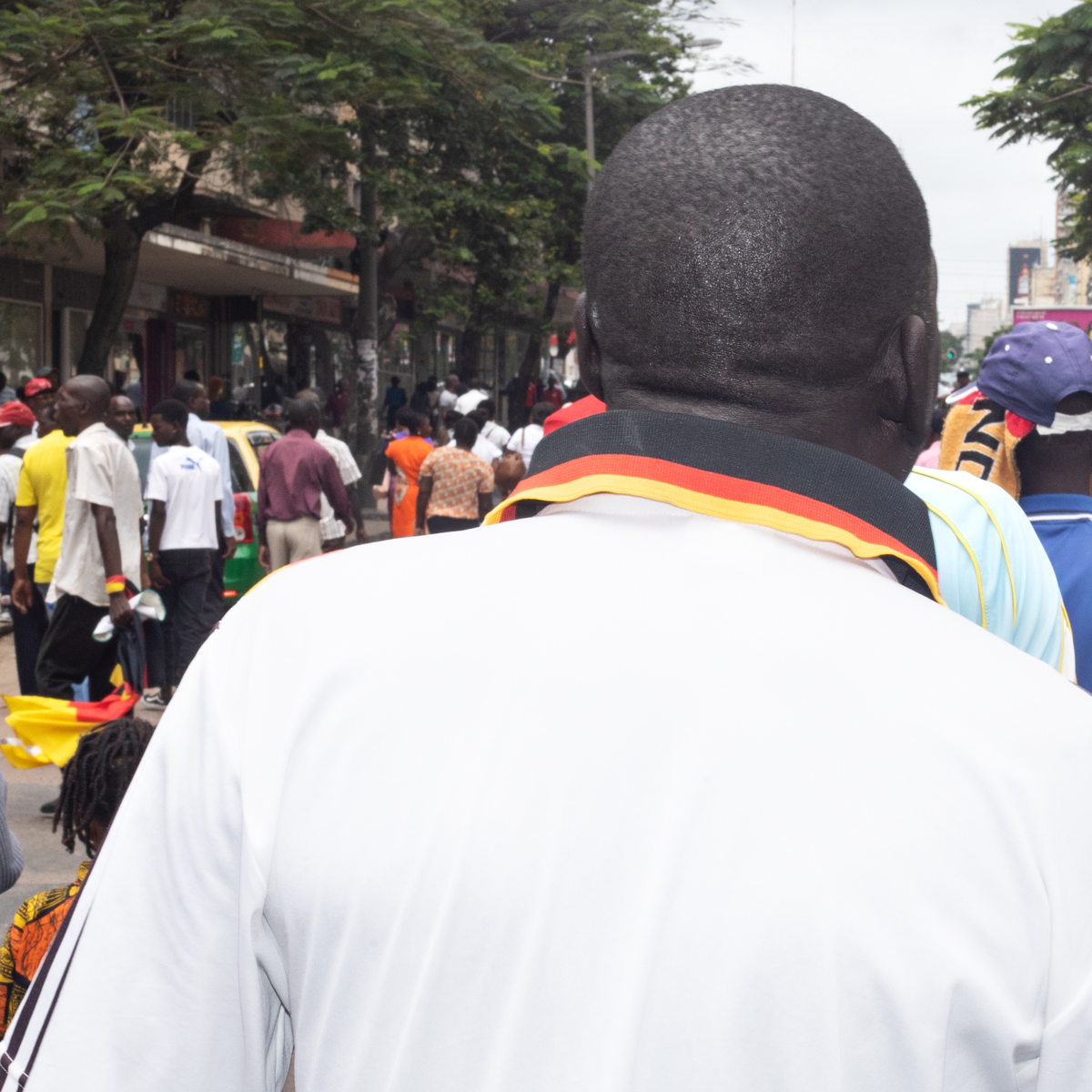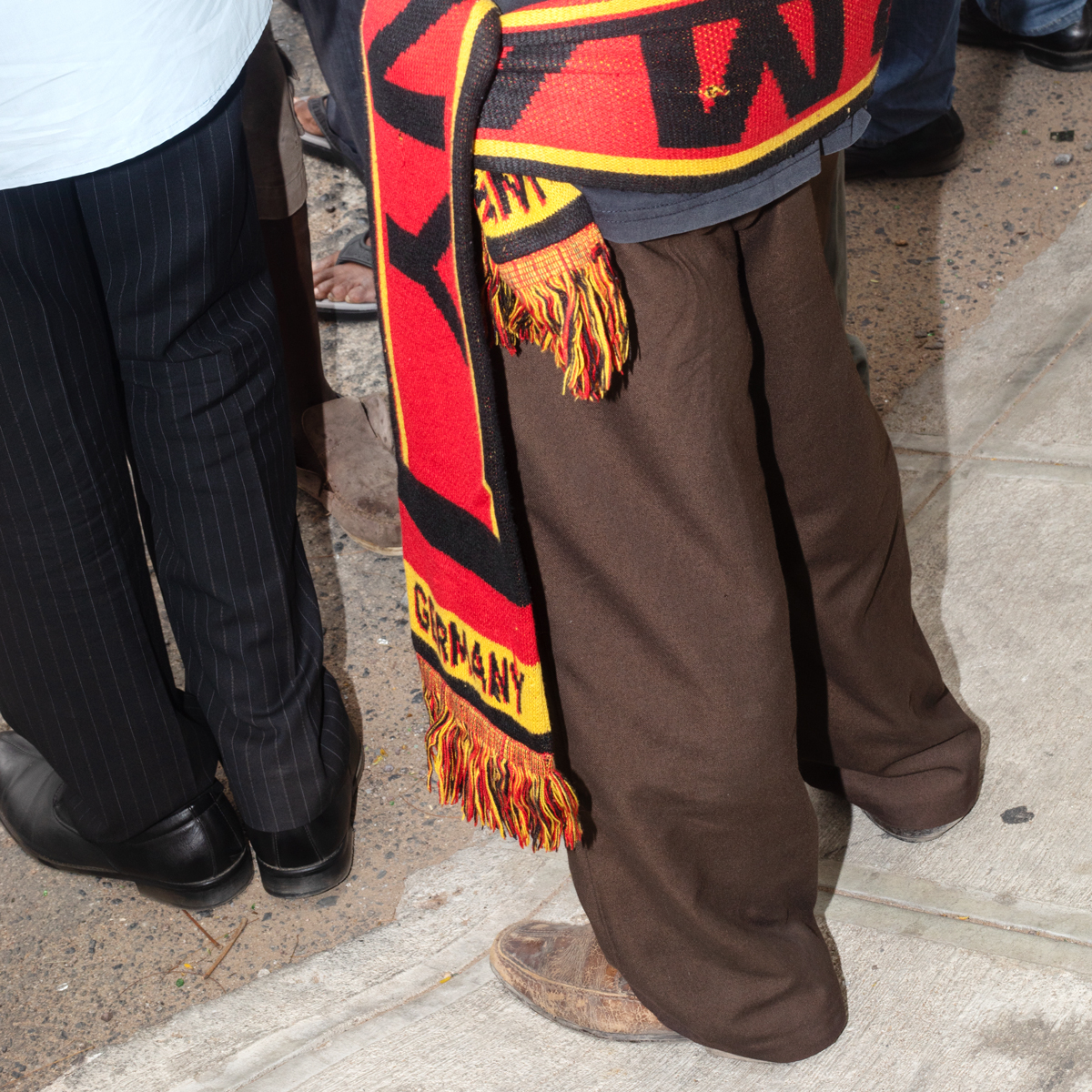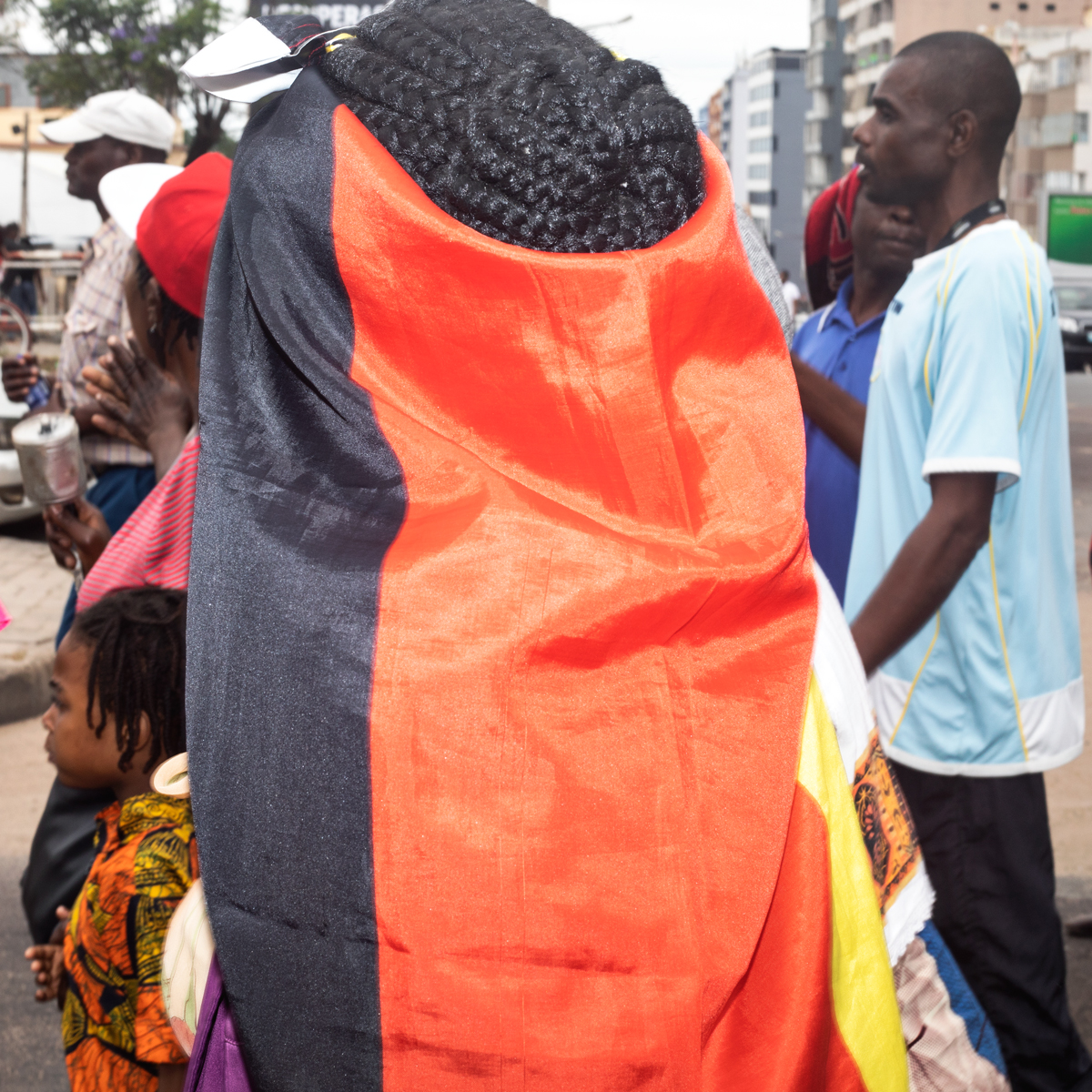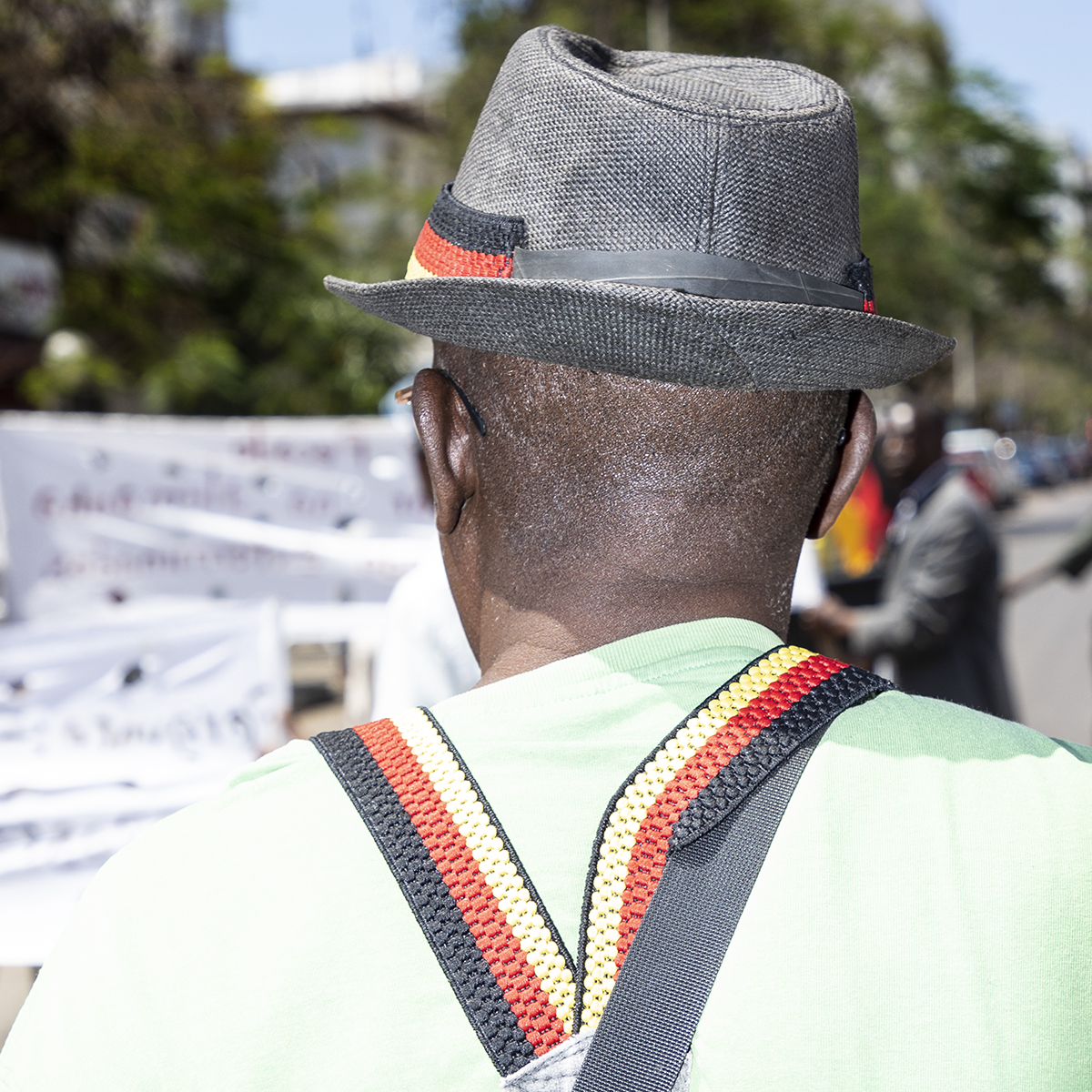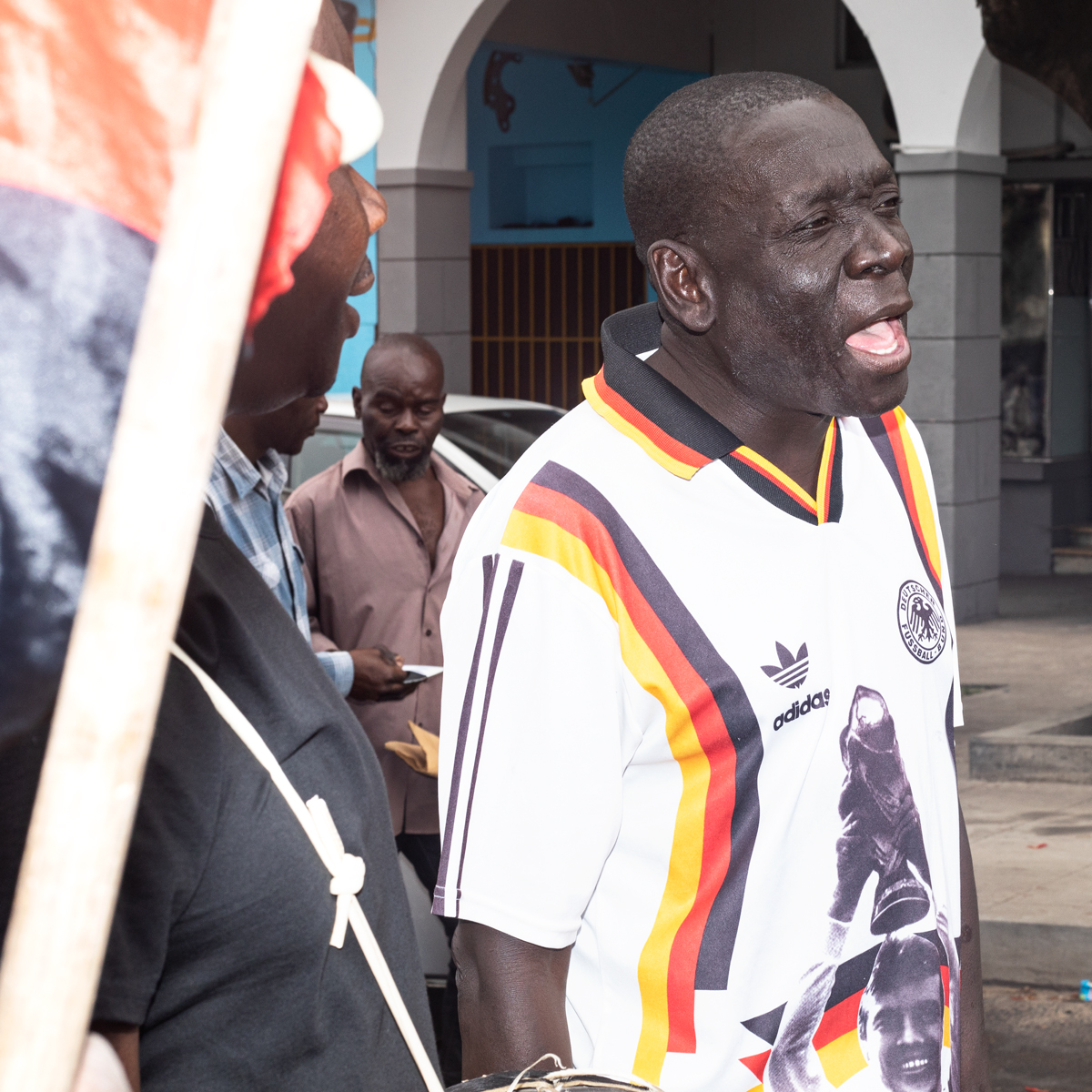ONCE WERE COLLEAGUES.
Toward a semantics of return.
Once Were Colleagues is a long-term project/research (2018–2023) focused on the complex story of the Mozambican workers and students in the former GDR from the perspective of those who returned. Thanks to 21,000 contracts stipulated by the German Democratic Republic between 1979 and 1989, the future African working class reached Europe under the influence of Socialist Internationalism. Through a series of chapters/installations, the project invites viewers to create a map of their own to navigate this story, with its flow of heterogeneous, paradoxical and contradictory materials. Different scenarios are described by reconstructing the genealogies of various figures: the former workers who today occupy the Jardim dos Madgermanes and are still demonstrating for their rights; a group of ex-students from the School of Friendship in Stassfurt; a number of victims of the Hoyerswerda Riots of 1991; and the so-called Regressadas, Mozambican working women once employed in the factories of the GDR. Each of their lives bears the mark of a common fate: participating in a historical expectation that failed to be realized, a feasible utopia that dwindled until it reached its inescapable end with the advent of the God of Return .
Each chapter is the result of the combination of three sources: portraits, fragments of oral histories in the form of audio clips, and photo archives belonging to the community, rendering the viewer the repository of a possible synthesis. The constant cross-contamination of these three languages produces a motion that is similar to the intertwining of the three strands of a braid, allowing each viewer to find their own path through this complex network of memories, hopes and disappointments placed on a border where the passage of history is interwoven with a more private dimension of the passing of time. The visual material ceaselessly endeavors to connect with the sound of the voices, finding in oral history a space where it can experience the multiple, seeking the possible coincidences of opposites. We know that, despite its futuristic propaganda, internationalist solidarity often entailed the negation of the fundamental rights of foreign workers. We also know that this awareness can coexist with carefree, sometimes even glorious memories such as only youth can produce and nostalgia transform. We know that in every human existence there is a before and an after. In what way did their return to Mozambique affect their recollection of the years spent in Germany? This project doesn’t dodge the present. What are the Madgermanes still fighting for 35 years later? What is still unsolved in this story, continuing to animate the political struggles and demands that are enacted to this day in Maputo?
I.
JARDIM/Garden
This chapter/installation celebrates the community of the so-called Jardim dos Madgermanes, a park on Avenida 24 di Julho in Maputo where the Mozambicans who worked in the former GDR have been gathering for over thirty years in the shade of a large German flag. In 1992, after one of their visits to Ministry of Labor, a group of Madgermanes was sent to the Jardim 28 de Maio (or Jardim da Liberdade) to wait for the outcome of their demands in the hopes that the wait would tire them out and consume their energy. The exact opposite happened: the wait created a community. Where the lack of acknowledgment of their rights seemed to remove them from every dimension of history, their response was formed through the occupation of a physical space, a portion of the urban fabric of Maputo in which they would become the living archives of their history and supporters of a patient revolution. Inside the physical, the metaphysical took root, turning the garden into a metaphorical place where timelessness, the dialog between a lost past and an uncertain future, and the celebration of a “reinvented” Germany are melded with everyday needs and political action. Its configuration is that of a base (which is what many Madgermanes call the garden) but also of a haven for a possible journey: the journey some young Germans decide to undertake in search of their fathers after the fall of the Berlin wall separated them. This installation, made up of 100 portraits, captures the features of those who are creating this space of resistance on a daily basis, determining its pulse and identity. In this chapter, return shapes a territory where the landscape of trauma was able to turn into a place of care, conviviality, and pride.


II.
ICONOGRAPHIES OF MEMORY.
This chapter/installation explores the everyday life, the youth and the moments of leisure of Mozambican workers in the GDR through their private photographs. In the official photo archives of the former GDR, the depiction of the vetragsarbeiter is subordinated to the requirements of propaganda. Body language becomes the means to express a social lesson in internationalist solidarity. In the private archives, the body is freed, returning to its primary role, vehiculating its own narrative, inhabiting the space of intimacy or of travel, offering itself up to the camera lens during numerous visits to photo studios. We tackle these photographs through a comparative analysis of two types of archives: on the one hand the private archives collected by the workers during their time in Germany where authorship dissolves into collective memory; on the other hand the archives and diaries of Geraldo Paunde, a miner from BKW Welzow in Hoyerswerda, who was also a photographer and contributed to the creation of a visual diary that contains both official events and private moments of the lives of the Mozambican workers in the former GDR.


III.
SCHOOLMATES.
This chapter explores the stories of 13 former students of the Escola di Amizade. In 1981, seconding an explicit request made by Samora Machel, the GDR opened a high school in Stassfurt destined to welcome 900 Mozambican youths: one of the most ambitious manifestations of internationalist solidarity. Filtered by childhood memories, the journey of these children from the southern hemisphere to the province of Magdeburg has a mythic quality in each of its phases. In the first, children from all over the country, moving for a year from one place to the other, finally reached Maputo where they awaited to travel to a mysterious country. In the second, a new life began as soon as their flight landed in Berlin, a country long-imagined where they gradually came to grips with their adolescence under the guidance of a socialist education. Then a sudden change of perspective: Samora’s death, the weakening of agreements with the GDR and the absence of a future for the socialist block precipitated their return to Mozambique, where all that awaited them was civil war and the draft. Their return is a broken thread, a sudden rend in their vision of the future, its contours merging into a thick shadow of disillusionment. In this chapter the betrayal of history develops into a traumatic life experience: what does one feel when one’s growth is anchored to a utopia shattered by the impact with reality? Here too the narrative of the installation is developed through different languages: portraits, photos from their private archives and audio files containing their stories that can be played at a listening station or added to a video montage.




















IV.
HOYERSWERDA '91
The story of the Mozambican miners of Hoyeswerda perfectly exemplifies the rise and fall of the whole vertragsarbeiter experience in the former GDR. Hoyerswerda welcomed the first group of Mozambican workers in 1980, the famous “group 1,” visited by Samora Machel in person during an official trip in 1981. Ten years later, in 1991, a number of those very same miners were victim of racist riots. Two images seem to encapsulate this period of time: the shiny black car driving Samora turns into the somber black of the first page of Spartakist in 1991 in which a Mozambican worker is escorted by the police during the riots. In this case, their return seems like a prophecy fulfilled: racism, a dark shadow denied by the public institutions, becomes increasingly visible making everyday life unstable. Then history takes another giant leap forward: amidst the uncertainty of reunification, in a mix of pragmatism and betrayal, the workers of the BKW Welzow were repatriated even though their contracts had just been renewed for another 10 years. In this chapter, too, three sources coexist: oral history in the form of audio files played through a listening station, the portraits of the workers today, and images from their private archives and the newspapers of the time.



Spartakist, September 1991












V.
QUARTA FEIRA, O PODER ESTÁ NA RUA.
In this chapter/installation, color emerges in the camera’s lens in a series of close-ups taken using a flash during a number of the Madgermanes’s demonstrations. Here our story lands in the present: whereas in the eyes of the European public opinion most issues related to the GDR belong to an unsolved past, in Mozambique they are still capable of generating protests and are at the heart of a political struggle and of the definition of people’s identity. For thirty years now, every Wednesday the Madgermanes march on the Ministry of Labor singing songs and chanting slogans, and teaching the rest of society how to tell the truth, but only after having carried out a peculiar clothing ritual in which they don t-shirts and carry gadgets and standards emblazoned with the German flag: the emblem of a state to which they were never able to return has become a symbol in which the rest of society can read their story. In this chapter their return takes on the contours of a struggle, of pride, and of an unquenchable thirst for justice.

